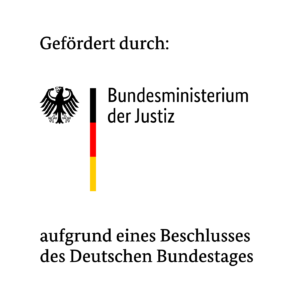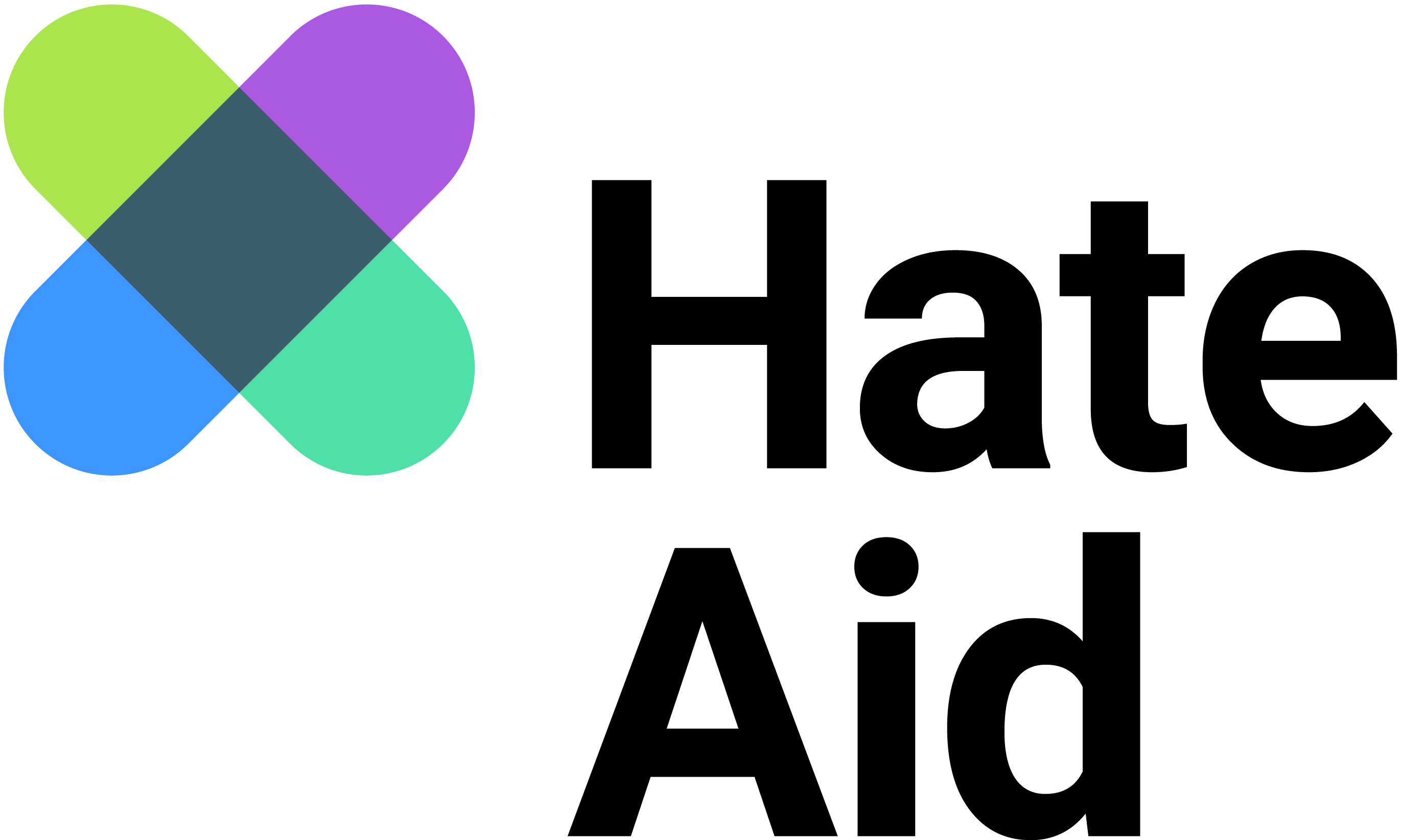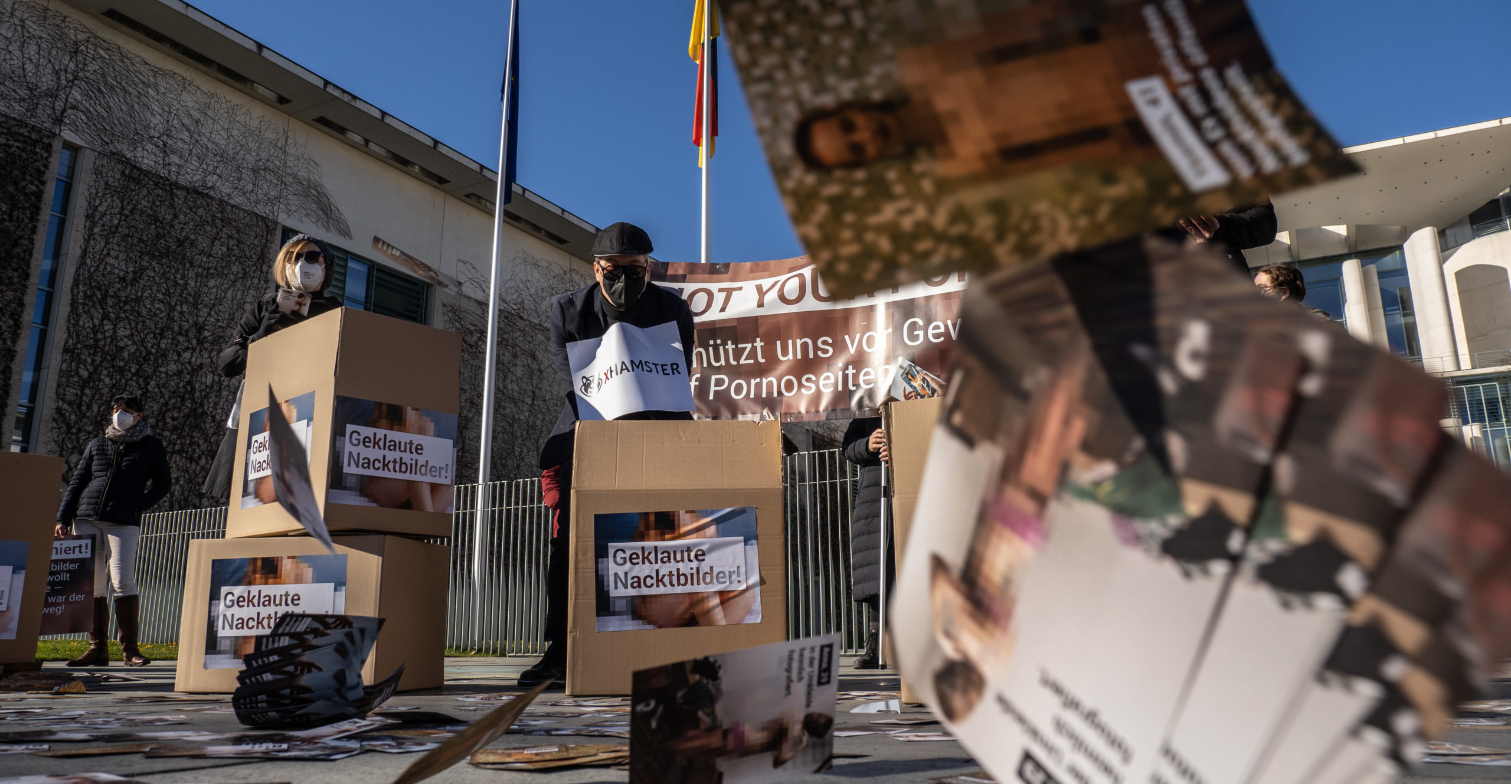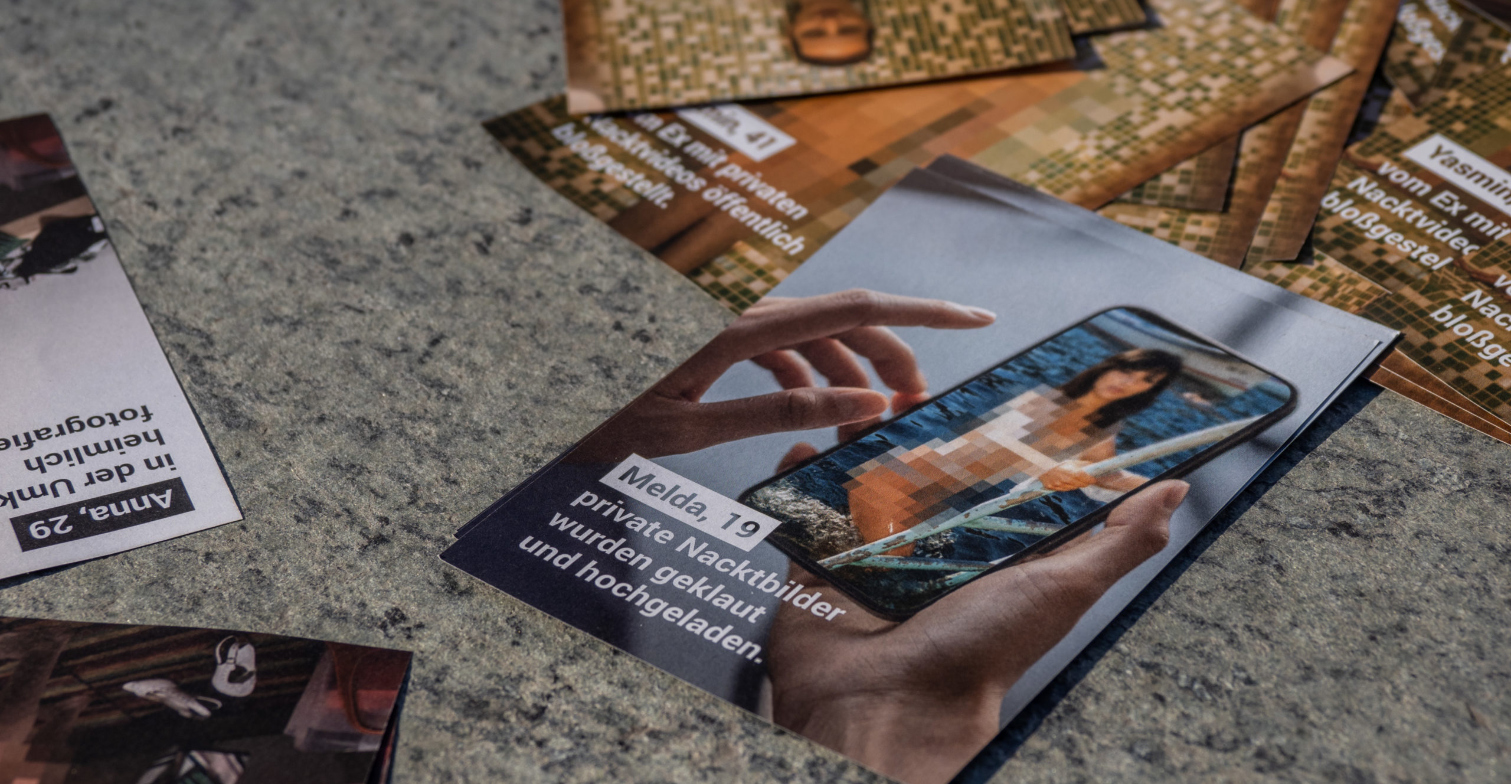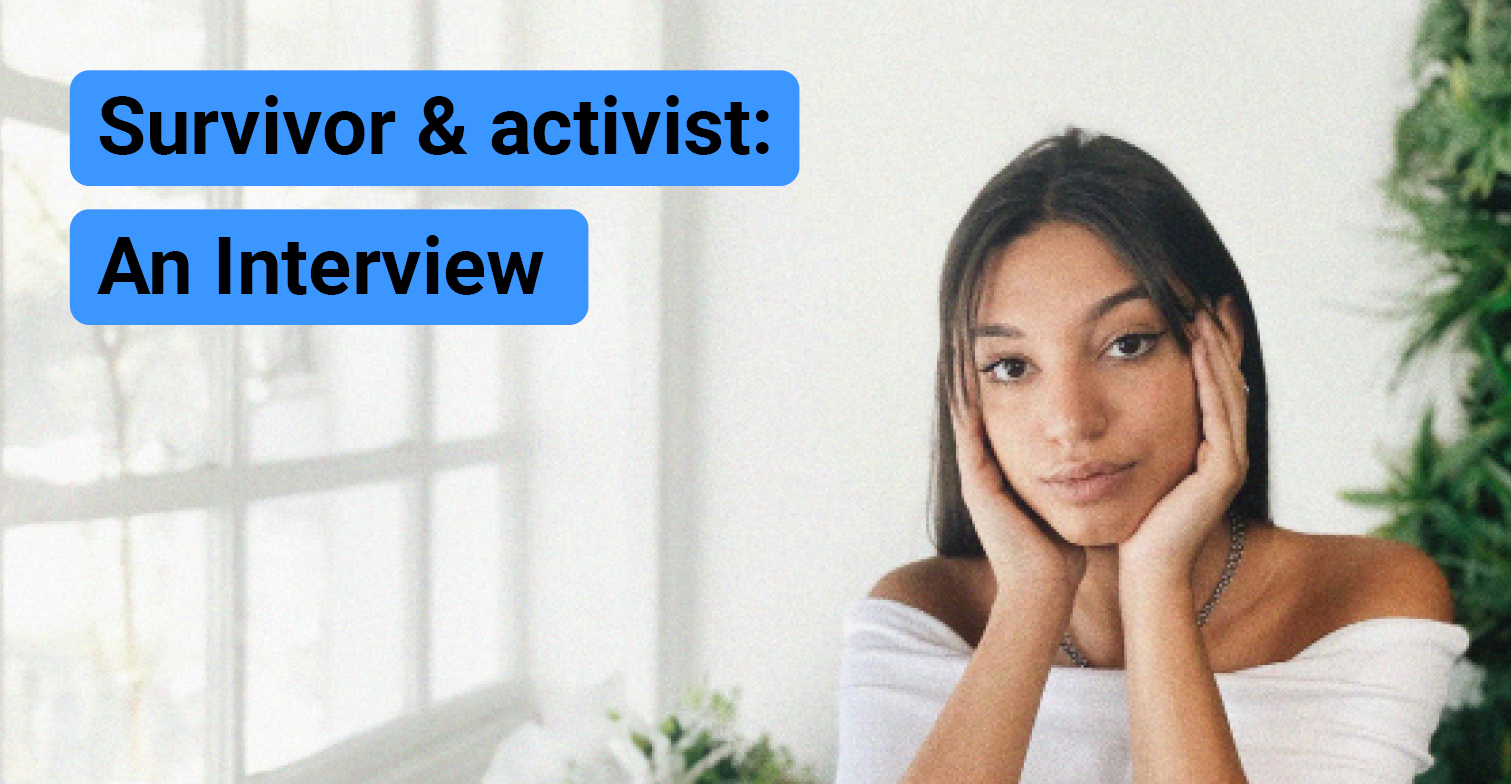
Image-based sexual abuse: Interview with Inês Marinho
Content warning: This article addresses the topic of sexualised violence. The content could be distressing and evoke unpleasant feelings or memories. Please read it with caution and take care of your own well-being.
Without her consent, masses of intimate images of Inês Marinho were circulated on Telegram. To raise awareness of the problem of image-based violence and to support victims, she and other victims founded the Não Partilhes (‘Don’t Share’) movement.
How did you feel when you found out that intimate pictures of you were being shared on Telegram? And how did you react?
When I found out that my intimate images had been shared, I was in the middle of a work shift. I was shocked and nervous, and immediately started reporting it because I didn’t know how long the content had been online, but it had already been spread across several porn sites.
How has it affected your life?
I started to be more afraid of leaving the house because there were several situations where I ended up being filmed or harassed in the street. There were very mean and derogatory comments made about me and my family on Reddit, Telegram and Twitter, which sometimes made me fear that they would hurt me.
I started to feel unable to feel sexual desire, I felt it wasn’t right to live my sex life freely. I felt very anxious, angry and frustrated that society had something to say (and it wasn’t friendly) about what had happened to me. So I was the victim of a crime and I was the one to blame?
Have the perpetrators been punished?
I’ve complained to the police about several different instances of people sharing my sexual content without consent and they’ve all been dismissed. One of the cases was dismissed with the response that the defendant had not committed any further crimes up to that point.
Based on this experience, you founded the Não Partilhes movement. What were the reactions?
As Não Partilhes was one of the first Portuguese online pages to talk about Image Based Sexual Abuse, we received a lot of attention in the first few weeks. With this attention also came mass denunciations from Telegram groups, where this type of content was shared and all kinds of sexist comments against the movement.
Even so, we had many testimonies, which made many survivors feel less alone and made the rest of the society realise that this is a real problem that seriously affects the lives of survivors and those around them.
What do you offer to people affected by image-based violence?
We have various types of content available online to answer people’s questions and raise awareness. We also give awareness talks in schools, colleges, together with other survivor associations both online and in person. We refer all our victims to a Safe Internet helpline from APAV, a Portuguese non profit that helps victims of all types of crimes. There, they get supported and helped to remove the content posted online.
What should everyone know about image-based violence?
Consent is important and it’s a decision that no one can make alone. Consent is fundamental in any intimate relationship, so sharing explicit images without the explicit and informed consent of all parties involved is a violation of privacy and can have severe emotional consequences on the people involved. Image based violence can have significant and lasting effects on victims, including emotional distress, anxiety, depression, damage to relationships, self-harm and even suicide. The impact on the survivors is devastating and unfortunately there are victims who are no longer with us. ´
Image-based violence is the non-consensual sharing of explicit or intimate content, often referred to as IBSA (i.e. image-based sexual abuse).
Where does the justice system need to change to better protect victims?
Addressing IBSA and better protecting victims involves improvements in various aspects of the justice system and law enforcement. Laws need to be simpler and more comprehensive, but this is complicated due to the different jurisdictions in the individual states. There is therefore an urgent need for greater harmonisation of the laws in the various European countries in order to guarantee uniform consequences. This would facilitate cross-border cooperation when perpetrators and victims are in different locations.
Is there a possibility to prevent image abuse?
Society as a whole needs to become more aware of this issue. To prevent image-based violence, it is important to promote education on sexual consent, digital media literacy and internet safety. Organisations such as Não Partilhes or HateAid contribute to a safe online environment and thus help to reduce such incidents.
Where does the justice system need to change to better protect victims?
Addressing IBSA and better protecting victims involves improvements in various aspects of the justice system and law enforcement. Laws need to be simpler and more comprehensive, but this is complicated due to the different jurisdictions in the individual states. There is therefore an urgent need for greater harmonisation of the laws in the various European countries in order to guarantee uniform consequences. This would facilitate cross-border cooperation when perpetrators and victims are in different locations.
Which issues should the laws address?
Laws should explicitly address issues of consent and malicious intent, ensuring that sharing intimate content without consent and with malicious intent is a punishable offense. More law enforcement agencies should provide specialised training in digital forensics to investigators. This training helps in efficiently collecting and analysing digital evidence related to IBSA cases. There should also be sensitivity training for law enforcement on handling cases involving sensitive and personal issues, which is crucial to ensure a supportive and empathetic approach toward victims.
What is the role of online platforms?
Collaboration between law enforcement and online platforms is vital. Platforms should have efficient and expedited procedures for taking down explicit content without consent. There’s a need to strengthen general privacy laws that can contribute to the protection of people’s personal information, making it more challenging for explicit content to be shared without consent.
Addressing IBSA involves a multi-faceted approach that combines legal, technological, and social measures. It requires ongoing collaboration between lawmakers, law enforcement, technology companies, and advocacy groups to adapt to the evolving challenges posed by the digital age.
What do you recommend to victims of image-based violence?
In my opinion the most important part is to understand that this is not your fault and that your sexuality should never be weaponised against you. Take care of your mental and emotional well-being, maybe consider seeking therapy or counselling to help cope with the emotional impact of the situation.

I advise all the survivors to reach out for support, talk to friends, family, or a counselor who can provide emotional support. Contact organisations that specialise in supporting victims of online harassment or image-based abuse.
Remember, it’s important for all the survivors to involve law enforcement and legal professionals to address the issue properly. It’s also really important to document the evidence, take screenshots and save any evidence of the content being shared without consent. This will be important if legal action is pursued. Report to platform administrators and ask people close to you to do the same, if you’re comfortable with that.
When you’re ready to contact law enforcement, in some jurisdictions, non-consensual sharing of intimate images is illegal. If you feel comfortable, report the incident to law enforcement and provide them with the necessary evidence. If you are able, consult a legal professional to understand the laws in your jurisdiction and explore options for taking legal action against the perpetrator.
Find support here
Are you yourself affected by image-based online violence? Then get in touch with our consultation team.
Header image: Inês Marinho
